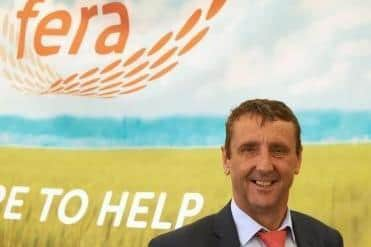Jobs boost for York as Fera Science opens £1m laboratory to support food industry
The £1m expansion involved converting a former storage unit on site into a purpose-built insect research unit, increasing Fera’s presence at YBC by more than 2,000 sq. ft.
A spokesman said: "This expert research and development (R&D) facility will support the rapid growth of insect bioconversion to upcycle biomass residues into valorised products.
Advertisement
Hide AdAdvertisement
Hide Ad"Fera’s R&D services will help a variety of industries to evaluate the feasibility and scale up processes by which they can best adopt the technology.


"Fera has led insect bioconversion R&D (research and development) in the UK and EU for the past 10 years. The laboratory, which is the first of its kind in the UK and one of the first in Europe, enables Fera to help meet the needs of global clients from across the food industry by expanding the scope and scale of its current insect services to ‘twin’ the process of insect bioconversion at factory production scale."
Insect bioconversion is the process of feeding insect biomass residue to create products, such as proteins and oils, packaging materials or soil nutrients.
Dr Andrew Swift, Chief Executive Officer at Fera Science said: “Today’s launch of our specialist insect laboratory is an important step in the delivery of expert support from Fera to help the food production industry and its stakeholders, in both the commercial and public sector, to respond to the opportunity this technology presents.
Advertisement
Hide AdAdvertisement
Hide Ad“The rising pressure to meet consumption for the growing population globally estimates that more than 250 million metric tonnes of additional protein will be needed per year in the decades ahead.
"This puts immense pressure on our current animal feed protein sources such as soy and fishmeal which are derived from unsustainable sources. Insect bioconversion presents one route to provide sustainably sourced protein into the food chain to help overcome this challenge. Under a circular economy, this technology can reduce biomass waste through consumption and conversion into high quality protein for animal feed as well as other bi-products of high value to food production.
Tamara Finkelstein, Permanent Secretary at Department for Environment, Food and Rural Affairs (Defra) said: “I am delighted to see Fera opening this state-of-the-art insect research laboratory. This is a critical time for innovation in biotechnology and the insect unit has the potential to reduce our impact on the environment, making progress towards a more circular economy.
“The breadth of national and international partners involved will help ensure its success and demonstrates Fera’s international reputation for taking scientific innovation to new markets.”